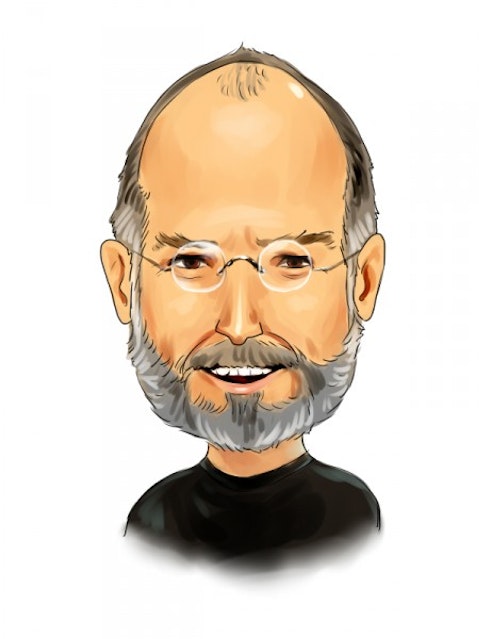One of the most successful CEO’s and technology innovators in history was born on Feb. 24, 1955. Say happy birthday to the late Steve Jobs, who died on Oct. 5, 2011.
Mr. Jobs was, of course, the co-founder and long-time leader of Apple Inc. (NASDAQ:AAPL). He helped bring some of the most iconic devices in history to the marketplace: the Mac computer, the iPod, the iPhone, and the iPad. He gave the consumer things that they didn’t know they needed and now they can’t live without them.

All is not lost for Apple Inc. (NASDAQ:AAPL), though. Current CEO Tim Cook was Mr. Jobs handpicked successor and has guided the company as it has updated all of its gadgets including the iPhone, the iPad and several versions of the iPod and Mac line of computers. Rumors abound that several new products are in the pipeline.
Other Founders Who Have Left
How are other companies doing after the departure of successful leaders who founded the business?
Sam Walton founded the company that has grown into the low-cost retailing giant Wal-Mart Stores, Inc. (NYSE:WMT). The first store was opened in Rogers, Arkansas in 1962. The company was formally incorporated in 1969 and its stock began trading in 1970. That year the company had 38 stores, 1,500 employees and sales of $44 million.
Mr. Walton stepped down as CEO in 1988. When he departed Wal-Mart had 1,200 stores, including its first Supercenter, which combined food and discount stores together, employed 200,000 and reported sales of $21 billion.
Today the company has 8,500 stores, 2.1 million workers and reported revenue of $469 billion. Obviously Mr. Walton left a legacy, and the company didn’t miss a beat. Five members of his family, some of whom are still involved in company operations, rank in the top ten richest Americans based upon their combined 48% interest in Wal-Mart.
The fast food restaurant chain that became McDonald’s Corporation (NYSE:MCD) was started in California by the McDonald brothers of Manchester, NH, but it achieved its phenomenal success under the leadership of Ray Kroc beginning in the 1950’s. The company began trading publicly in 1965 and opened its 1,000th restaurant in 1968.
Mr. Kroc remained in charge until giving up his CEO post in 1973. The company hasn’t suffered. McDonald’s reported revenues of $27 billion last year. It currently operates 34,000 stores worldwide and serves an average of 68 million customers daily. The company has increased its dividend at a compounded annual rate of 21%.
Founder Still in Charge
There are many companies whose founders are still in charge. What will happen to them when they leave?
One of the world’s richest men and most successful investors in history is Warren Buffett. He took control of Berkshire Hathaway Inc. (NYSE:BRK.B) in 1962 when he bought a majority stake in a business that was primarily a textile manufacturer in New England. It has since morphed into a holding company for many diverse businesses, including insurance, railroads, newspapers and manufacturing. It is presently the 5th most valuable company in the world (4th in the U.S.) with a market cap of $250 billion.
Mr. Buffett, 82 years old, and Berkshire have created a CEO succession plan. The company announced last year that a new leader has been chosen but didn’t publicly name the individual. Whoever takes over has big shoes to fill.
So can Apple Inc. (NASDAQ:AAPL) perform as well as it has before? Can it perform as well as other companies who have lost their founder? If history serves as a guide, it is certainly possible.
The article Happy Birthday to Steve Jobs originally appeared on Fool.com and is written by Mark Morelli.
Copyright © 1995 – 2013 The Motley Fool, LLC. All rights reserved. The Motley Fool has a disclosure policy.





